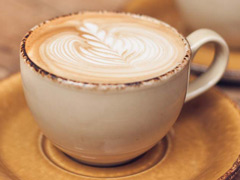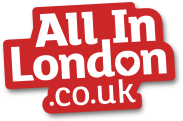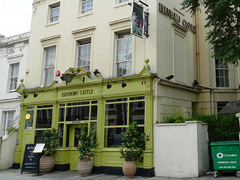


In early 2013 coffee shop Harris + Hoole made headlines when it was revealed Tesco is one of its financial backers. This provoked the ire of many customers who felt duped by the coffee shop’s image, one that emulated an independent store with its blackboards, brick walls and leather armchairs, only to find out that the supermarket giant have a 49% stake in the business. Overnight, a flurry of messages on social media sites confirmed that people who had previously been satisfied with the taste of their coffee would never visit again, despite the fact that Harris + Hoole claim they were never shady about their finances. In fact their website’s “About Us” section mentions having had a little help from Tesco, who made a non-controlling investment for founders Nick, Andrew and Laura Tolley to be able to fulfil their ambition.
Nowadays it’s practically impossible for new businesses to get loans from banks, so the only remaining options are having a very generous, very rich friend or seeking economic assistance from a wealthier company. But Harris + Hoole - which now has ten London branches in suburbs like Crouch End and Ruislip – really touched a nerve, as rather than being bought out by a bigger fish many felt it was being marketed like a small, up-and-coming indie outlet. Did consumers have the right to be up in arms over the coffee shop allegedly posing as the underdog, or is this a case of blatant hypocrisy? Let’s take a look at some of the other little companies with backing from the big guys.
Often it’s not obvious when something is owned by a global corporation. While it may be stated on Ribena’s website that they are owned by GlaxoSmithKline they don’t shout about it in adverts. A lot of the time even this information isn’t readily available, which makes it nigh on impossible for consumers to spend money “responsibly”, unless you have plenty of time to go on the Companies House website researching and then avoiding places that will more often than not be conveniently positioned on your local high street.
Other partnerships you may or may not know about include Teapigs, the posh tea usually found in delis on Marylebone High Street and places like the café of Foyles bookshop. Teapigs is owned by Tetley’s, shock horror, which is in turn owned by the humongous multinational Tata, whose other subsidiaries include automotive company Jaguar and Indian airline Taj Air, cue more abject horror.
Remember when Anita Roddick sold Bodyshop to L’Oreal? At that moment many lost faith in the popular high street shop’s reputation for being an ethical brand, however that being said they’re still doing a roaring trade. And the two Cambridge guys who founded smoothie makers Innocent have progressively sold more and more of their company off to Coca Cola since 2009; the latest figures show they will soon control 90%.
\n\nTesco also own Giraffe, a family-friendly chain of eateries which has 49 sites in the UK. They paid around £50 million for it in March 2013, with the aim to open new outlets within branches of Tesco Extra. And they also have their fingers in the pies of Euphorium, the upmarket bakery with sites in South Kensington and Hampstead. Not only do they have a clear monopoly where supermarkets are concerned, they also seem to be buying up everything in sight, including Dobbies gardening centres. Whatever next, Ann Summers?
Glamorous restaurant Kettner’s first opened in 1867 and was once a favourite of Oscar Wilde and Agatha Christie. In the 1980s it was bought by Pizza Express and became a pizzeria, making it a Soho favourite thanks to the possibility of a cheap dinner within elegant settings – they even had a champagne bar! It’s undergone a revamp since and the menu is more what you would expect from the surroundings, but it’s still owned by the Gondola Group, who are also behind Pizza Express, Ask, Zizzi and Byron.
\n\nAnd if you’re wondering about other popular family-friendly eateries like Strada, Café Rouge and Belgo, yes, they are all owned by the same parent company. Tragus is also big daddy to Bella Italia, to be found in many tourist hotspots around the city. All are extremely successful, as they can afford to keep prices down and open in areas with a high footfall.
In an obvious attempt to cling on to the villagey look of Highgate, the local Caffé Nero is situated within the Old Butcher’s Shop, a fact it proudly displays on a sign right beneath its more globally famous name. Is it still a butcher’s shop? No, but they’ve kept/emulated the charmingly old fashioned façade as it boosts their credibility.
It’s not being part of a chain per se that puts potential customers off, it’s when there’s a lack of transparency that can make people feel misled. So should Harris + Hoole have added “Tesco’s” to the start of their name for the sake of clarity? It’s highly doubtful their coffee would have tasted so good in the first place.


